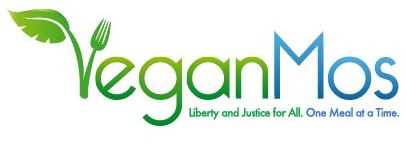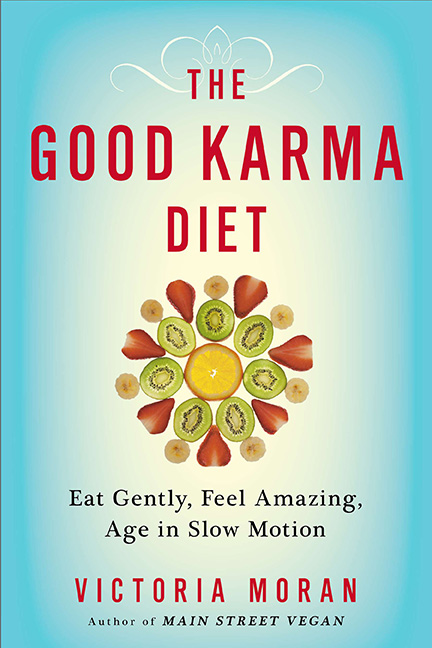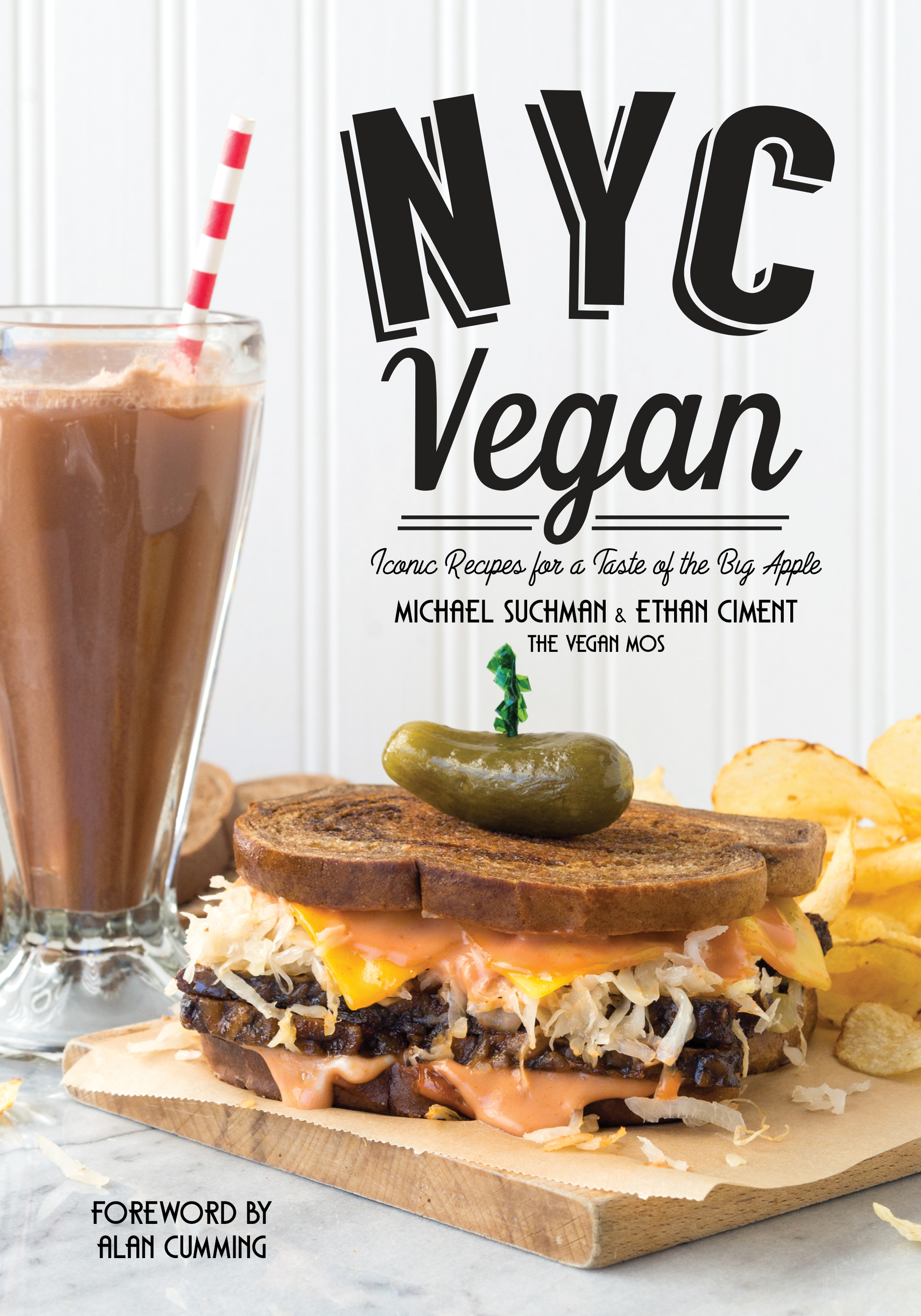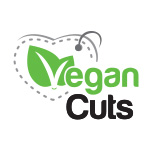As the saying goes, “karma is a boomerang. What you send out, you get back.” In her latest book, The Good Karma Diet: Eat Gently, Feel Amazing, Age in Slow Motion, Victoria Moran delves into that belief and examines how eating compassionately can bring positive changes to your life. Victoria’s enthusiasm for living a vegan life is palpable in every sentence of The Good Karma Diet. However, you don’t have to take only Victoria’s word about the positive effects from living vegan. Within each chapter of the book are “Good Karma Stories.” These anecdotes are from men and women whose lives were changed for the better once they altered their food choices to being eating compassionately.
Throughout the book, Victoria offers tips to make the change to a vegan diet as smooth as possible for those, like me, for whom a gradual transition is better. The Good Karma Diet approaches veganism in relation to Newton’s Third Law of Motion. The law states that for every action, there is an equal and opposite reaction. In other words in every interaction, there is a pair of forces acting on the two interacting objects. The size of the forces on the first object equals the size of the force on the second object. If you eat good, healthy, nutritious foods that are free of suffering and cruelty, you will be rewarded with a beautiful life.
Here is an excerpt from the book.
From “The Good Karma Diet”
The Good Karma Diet
By Victoria Moran
Good Karma eating is as simple as can be: comprise your meals of plants instead of animals, and most of the time choose unprocessed plant foods, meaning that they got from the garden or orchard or field to your kitchen with minimal corporate interference.
this way of eating gives you good karma in two ways. The first is self-explanatory: by eating foods of high nutrient density and avoiding the animal products and processed foods your body can have trouble dealing with, you’ll reap the rewards of improved health. The second is a bit more mystical: you do good and you get good back.
As is true for life in general, it’s probably better to do this with unselfish motives, but even if your motivation is to become thinner, healthier, or more youthful, you’ll be doing something modestly heroic at the same time. This way of eating and living could lessen the suffering of billions of animals. I know it’s hard to think in terms of billions, but if you imagine counting the individual beings one at a time, you get some of the impact. In addition, ninety-eight percent of the animals raised for food suffer horrifically on factory farms before being slaughtered, often in adolescence. Every time you eat a vegan meal, you’re voting for something different.
This choice also lightens the burden on the planet. Raising animals for food in the numbers we do today calls for an exorbitant amount of water and fossil fuels. It leads to vast “lagoons” of animal waste, and the release into the atmosphere of tons of greenhouse gases, mostly in the form of methane.
What you have here is holistic dining at its finest – body and soul. Eating whole, plant foods is scientifically validated as being both nutritionally adequate and anti-pathological. In other words, it cures stuff. Not everything. But reversal of such scourges as coronary disease and type 2 diabetes among people on this kind of diet has been repeatedly reported in the scientific literature; and the preventive potential of this way of eating is supported by ample research.
If this sounds great but going all the way seems impossible right now, go partway. Americans’ consumption of animal foods has, as I write this, been decreasing annually since 2007, primarily because non-vegans are making vegan choices some – or much – of the time. They fix a veggie-burger or black beans and rice, or they order their latté with soy, or have a green smoothie for breakfast so they’ll look prettier and — what do you know? — the statistics get prettier, too.
Once you’re fully vegan, celebrate! The only thing you need to “do” nutritionally that you weren’t doing before is take a vitamin B12 supplement of about 100 micrograms a day as a tiny, tasty, melt-in-your mouth tablet. B12 is not reliably found in plant foods unless they’ve been fortified with it, and lack of B12 is dangerous. This single missing element in a plant-food diet pains many vegans. If this is the perfect diet, it ought to be, well, perfect. But this is life on earth: extraordinary, magnificent, and absolutely not perfect. Bacteria in our mouths and intestines do make some B12, and maybe at some point in evolutionary history we all made enough, just as our long-ago ancestors made their own vitamin C and now we don’t. I look at taking B12 as a tiny surcharge for the privilege of being vegan.
If you hear yourself saying “I could never give up ice cream” (or something else), realize that you may just be short on vegucation. There are lots of rich, luscious nondairy ice creams on the market, and you can make exquisite homemade ice cream with only a DIYgene and an ice cream maker.
If you have the information and you’re still saying “I could never give up. . .,” listen to yourself. You’re affirming weakness. You’re bigger than that. You can eat plants and save lives. You can give your life exponentially more meaning by living in a way that decreases suffering just because you got up and chose a kind breakfast.
Without this commitment, the Good Karma Diet would be, as much as I hate to say it, just a diet. To me, a diet is: “Eat this and don’t eat that, and feel guilty when you screw up, which of course you will because you’re only human, for heaven’s sake, and nobody can be on a diet forever.” That doesn’t really make you want to say, “I’ll have what she’s having.”
Understand and embrace the compassion piece, the conviction that you’re here to make life easier for others, regardless of species, and then everything else – whatever tweaks you might make because of an allergy, a digestive peculiarity, a personal preference — will come with little effort. This lifts that word “diet” from the deprivational depths and restores its original meaning from the Greek diaita, “a way of life.” And this particular way of life is one replete with meaning and fulfillment and joy.
Excerpted from THE GOOD KARMA DIET: Eat Gently, Feel Amazing, Age in Slow Motion by Victoria Moran, with the permission of Tarcher/Penguin, a division of Penguin Random House. Copyright © 2015.
And if that is not enough to peek your interest, perhaps we can tantalize your taste buds with one of the amazing recipes from the book created by Doris Fin, CHHC, AADP.
Banana Soft Serve
Ingredients:
4 ripe bananas, frozen
1 teaspoon vanilla extract, or 1⁄4 teaspoon vanilla bean powder
4 tablespoons nut milk (almond/Brazil) or water
Optional:
For a chocolate version, add 1 tablespoon raw fair trade cacao powder
Garnish:
1 tablespoon unsulphured, unsweetened, dried coconut shreds
1 tablespoon chopped nuts (almonds, walnuts, hazelnuts, etc.)
Cacao powder
Loving Preparation:
- Combine banana, vanilla, nut milk or water, and cacao if using, in a food processor or powerful blender with a tamper, until smooth and creamy like ice cream. Scrape the sides the food processor blender bowl so that all the banana is puréed.
- When the mixture reaches the consistency of soft-serve ice cream, scoop into serving dishes and sprinkle, if you like, with coconut, nuts, or a bit more cacao powder.
Variation:
Make a sundae with the addition of a drizzle of maple syrup or chocolate syrup (Cè Organics makes a delicious one with fair trade ingredients)
Or drizzle with a nice brandy for a sophisticated grown-up dessert
Serves 2 to 4
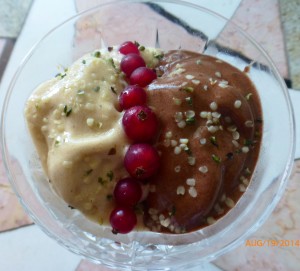
Excerpted from THE GOOD KARMA DIET: Eat Gently, Feel Amazing, Age in Slow Motion by Victoria Moran, with the permission of Tarcher/Penguin, a division of Penguin Random House. Copyright © 2015.
Photo and recipe by Doris Fin, CCHP, AADP.
The Good Karma Diet is a book that will nourish your soul and your body. For an added bonus, you can also order the “deluxe” edition which includes 25 minutes of exclusive video of author Victoria Moran giving readers wise instruction on how to make healthy and ethical food and lifestyle choices. Moran also sits down with inspiring vegans Sarah Gross, Joshua Katcher, and Leanne Mai-ly Hilgart to discuss how they have implemented the “good karma” lifestyle. Wherever you are on your vegan journey, The Good Karma Diet: Eat Gently, Feel Amazing, Age in Slow Motion will be a welcome addition to your library.
